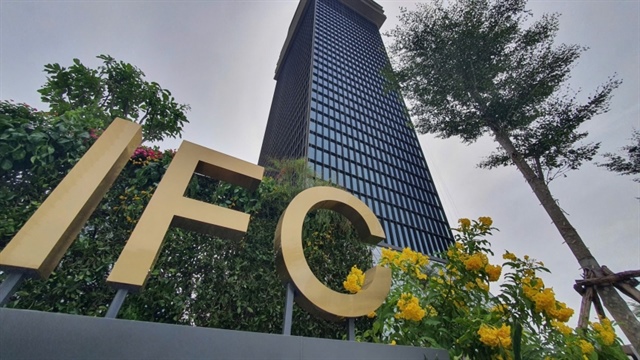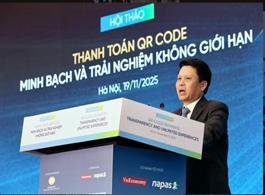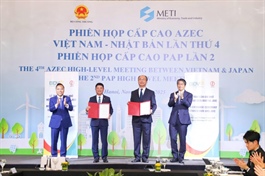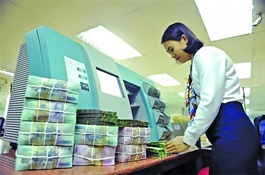Vietnam urged to elevate standards to advance IFC ambitions
Vietnam urged to elevate standards to advance IFC ambitions
Vietnam is well-positioned to develop an International Financial Centre (IFC), supported by its fast-growing economy, youthful talent pool, and strong manufacturing base. However, experts note that significant legal, regulatory, and administrative reforms are still needed to turn this potential into reality.
At a roundtable on the future of the IFC hosted by Apex Group on November 18, Dr Bhaskar Dasgupta, chairman of Apex Group in the Middle East, stressed that any successful IFC must be built on Vietnam’s unique strengths rather than replicating existing global models, and should stay closely aligned with national development priorities.
“An effective IFC also creates a network effect, where banks, insurers, corporations, and lawyers operate together, forming a sustainable ecosystem,” Dasgupta said.
According to Dasgupta, Vietnam’s strongest advantage is its deep manufacturing base and the opportunity to build its financial centres almost from the ground up. “If Vietnam can leverage its trade and manufacturing strengths and pair them with modern digital solutions, it could reach a scale of $70–100 billion across its two IFCs within the next decade,” he said.
Vy Le, co-founder and CEO of Do Ventures, said Vietnam is at a turning point in developing its capital market. Innovative startups have strong potential, but still lack the structural support needed to scale globally and engage international investors.
“The Initial Public Offering market has developed over the past ten years, and the VN-Index has tripled, but the overall scale remains small. We need to attract foreign capital while ensuring that private investors see sustainable returns,” she said.
Another challenge is legal certainty. Many investors require Vietnamese companies to establish parent entities in Singapore to secure protections such as liquidation preference and drag-along rights. These rights are recognised in Singapore but remain difficult to enforce in Vietnam. An IFC could standardise contracts to international norms, easing investor participation.
“An IFC also opens opportunities for modern fund structures recognised by global limited partners, similar to Singapore’s Variable Capital Company, enabling Vietnam to draw in more regional funds and domestic fund managers,” Vy added.
According to her, the first step in developing an IFC is to establish a single-window authority – a dedicated governing body empowered to build the institutional structures and complete legal framework needed to guide all subsequent development.
The second step is to design suitable financial products and develop a go-to-market strategy to entice the first customers.
“A key point, in my experience, is that there are many misconceptions about Vietnam, which means issues will arise. We need a troubleshooting unit for investors so that when problems occur, they can rely on predictable solutions. This makes the product more attractive,” Vy added.
Will Ross, Chief Marketing and Distribution Officer of Dragon Capital, said the feasibility of implementing IFC development plans is the foundation for success.
“The ability to commit capital depends directly on the confidence that investors will get their capital and expected returns back. Successful IFCs worldwide always put this at the core,” he said.
Ross also highlighted other essential factors, including a clear understanding of economies of scale, streamlined structures, and reduced costs for incorporation and maintaining IFC operations.
A third key area is cash flows. “Vietnam must clarify how capital moves in and out, applying digital processes with transparency and efficiency. Transparency also extends to tax matters, taxation mechanisms, taxable entities, audit requirements, and dispute-resolution processes with tax authorities,” Ross said.
He noted that the final element is sandbox experimentation, particularly for digital assets. “A sandbox creates space to test and to fail safely, without affecting the wider market,” he said, adding that Vietnam must also strengthen its infrastructure to ensure digital capital can enter the country securely and sustainably.
|
Richard D. McClellan, vice chairman of the Advisory Council for Vietnam’s International Financial Centre (Danang), believes Vietnam’s IFC development must progress in two directions.
The first is completing the overarching legal framework. “This legal framework is now being finalised. By the end of this month, the final implementation decrees may be signed. Then implementation needs to begin at the provincial level,” McClellan said.
“I believe the legal design is fundamentally on the right track. The government has done a superb job compiling commitments, especially considering that Resolution No.222/2025/QH15 addresses most of the issues investors previously faced. This unlocks the pent-up international capital that has targeted Vietnam over the past decade and now finally has an attractive channel,” he said.
“As long as the implementing decrees maintain the commitments outlined in Resolution 222, this will be a significant legal-design victory for Vietnam. We’ve sent the right signal to attract global capital,” he said.
McClellan noted that finalising the decrees is the most critical step in completing the IFC’s legal framework.
Secondly, execution truly begins, with key priorities including of establishing a governance mechanism and a dedicated operating authority, even with a small temporary team, to maintain momentum, attracting early customers and strategic investors, focusing on hard infrastructure, branding and communications, defining positioning, marketing strategy, and outreach plans for global markets and recruiting talent, defining organisational structure, identifying competencies, sourcing international and domestic professionals, and building digital infrastructure.
“An IFC can be seen as a sandbox for Vietnam, a place to test ideas not yet ready for the broader economy. If successful, these reforms could scale nationwide within the next 5–10 years,” added McClellan.
In terms of financial products, McClellan said Vietnam should focus deeply on a few specific areas, such as trade finance and supply chain finance, instead of attempting to develop all capital-market segments at once.
Vietnam holds significant potential to become an international finance hub, thanks to its dynamic economy, young workforce, and strong manufacturing base. However, turning potential into reality requires completing its legal framework, ensuring transparency, creating an investor-friendly environment, and developing modern financial products and ecosystems.
International experts note that success will depend not only on rapid growth but also on execution capability, transparency, and alignment with global standards – factors that can help position Vietnam as an appealing destination for domestic and foreign investors alike.
- 19:14 21/11/2025

























